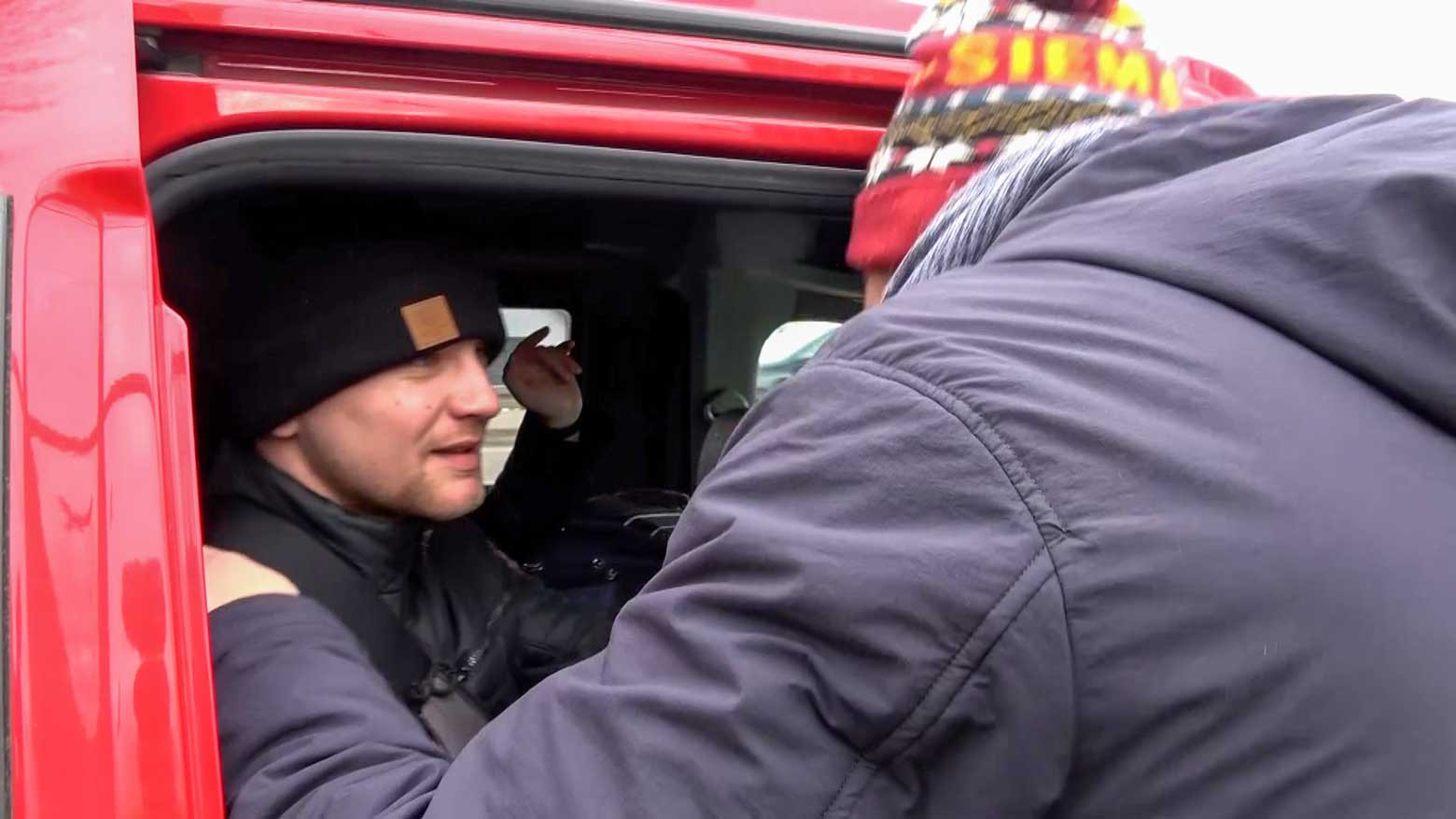Olga Morozyuk, 52, has worked in Warsaw for 11 years. Right after the invasion, she received a call from her husband, a truck driver who was heading to Sweden, saying he was turning around to go fight for his country.
Reluctantly, she prepared the gear he asked for, including a helmet and first-aid kit. "These are for the protection of my husband," she explained. "I never imagined that I would have to prepare to send him to war."
When we asked her if there was anything she chose to give him, she showed us a military compass. "With this, he will know the direction to head home, so he will not get lost," she said. "I wish for him to come back safely."
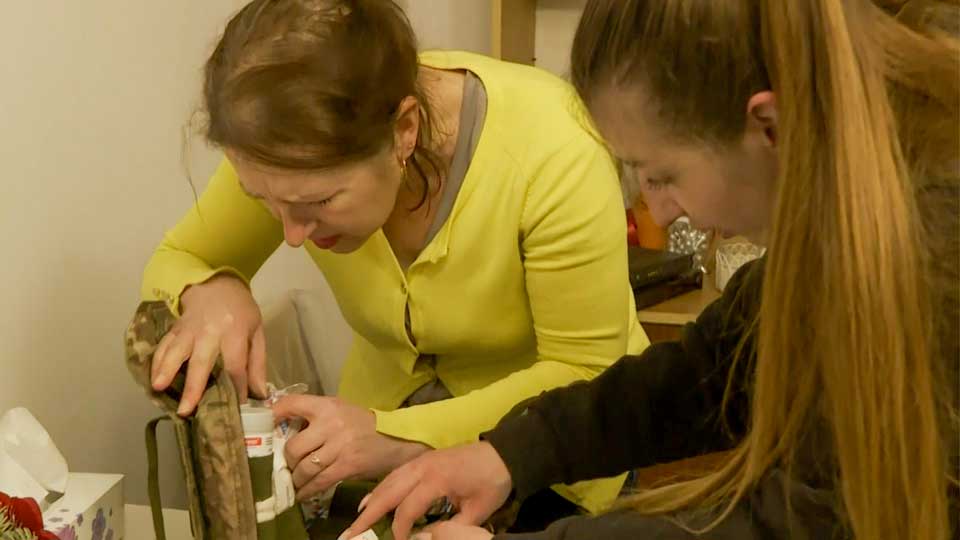
Her husband, who wants to remain anonymous, works for a Polish transportation company. All employees are Ukrainian, and he decided to go back with his colleagues. He served in the army for two years in the 1980s and emphasized that it is their duty to protect the country. On March 8, he called Olga, asking her to come to the local train station with the equipment he needed. They spent less than two hours together before he departed for their homeland.
"We didn't cry, he doesn't like to show tears," she said. "But as time passes, tears come out unexpectedly. I just hope that everything will be all right with him."
He has now been sent to the front line, but says that he is not allowed to reveal where he is for security reasons. There is nothing Olga can do but pray for his safety.
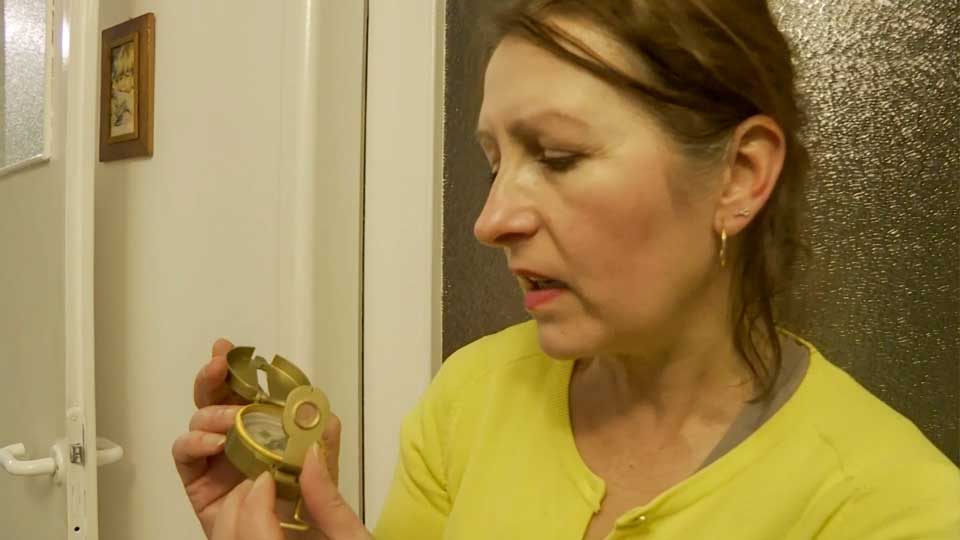
At a military supply shop in Warsaw, we met many Ukrainians who planned to go back. Staff there told us customer numbers had more than doubled. The most popular items were bulletproof vests, but those were out of stock in many branches. We met Vova, 32, and Panas, 25, who grew up together in Netreba, a small village in northern Ukraine. They allowed us to join them on their drive to the border the next day.
Panas moved to Warsaw a year ago to work at a construction company. He was about to marry his 23-year-old fiancee, Katia, in March, who is also from the same village, but the invasion changed their plans. The couple decided to go back to Ukraine, with Panas willing to fight if necessary. They opted not to tell their mothers as they knew they would be against the plan. Katia said she would be ready if Panas had to become a soldier, but uncertainty remained: "I am very afraid that if I lose him and all the connections with him we don't know what will be waiting for us."
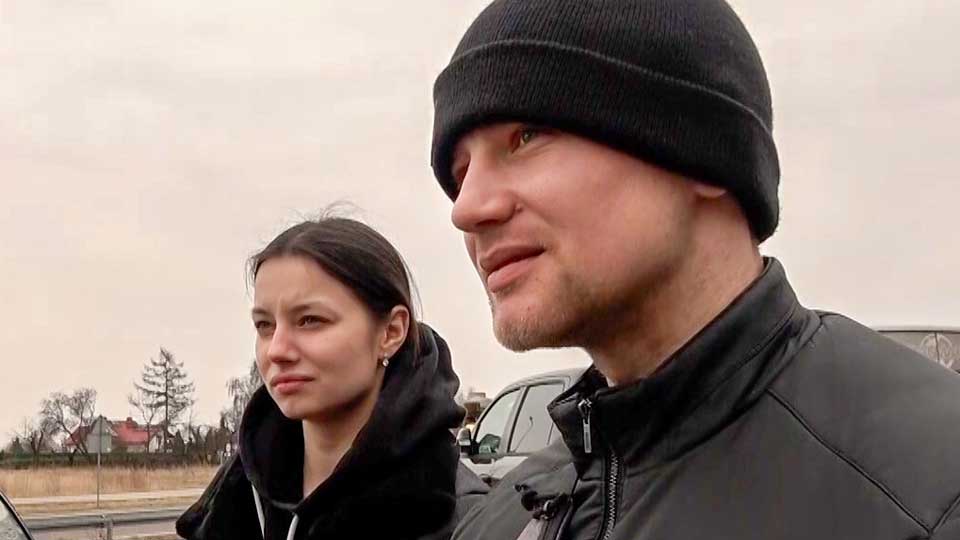
Vova, who has lived in Warsaw for ten years and has known Panas since childhood, decided not to travel with them. His daughter is only four years old and his wife strongly opposed him leaving them. But, when the young couple left, Vova offered them a ride to the border with medical equipment for clinics in their village. He said that supply chains in Ukraine have been damaged, and there are serious shortages of medical equipment, especially in small villages.
After the invasion, Vova researched what was most in demand and bought enormous amounts of first-aid kits, medicines and syringes. He asked for donations from the company he works for and paid for much of the gear himself. "It's hard for me to see my friends leave," he said. "But I will do everything I can to help my country from Poland." Now, he is studying first aid and learning how to handle a weapon to be ready to fight when needed.
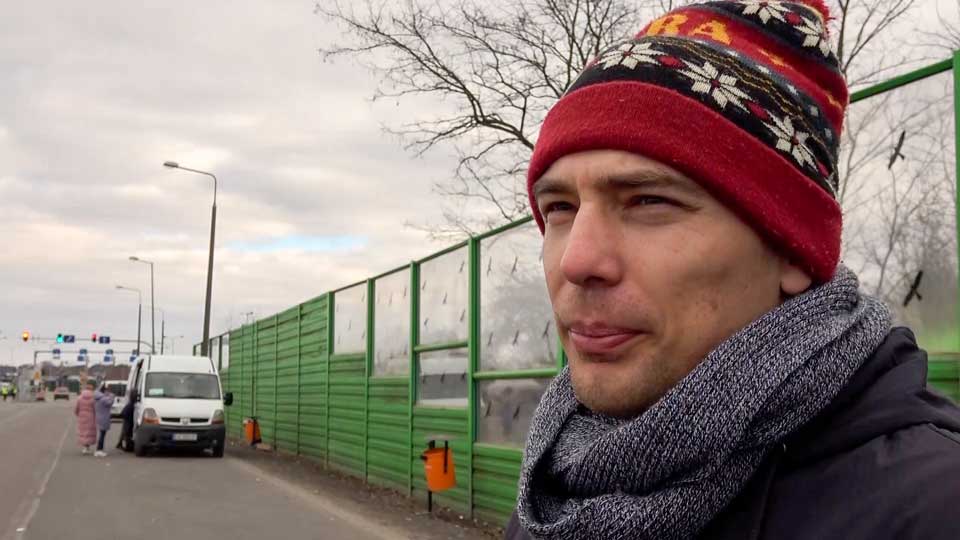
A few days later, Panas sent us a video of him delivering medical equipment to a clinic in his village. "Wounded soldiers and civilians have been brought here," he says. "I really want people to help us in any way they can – medicine, protective equipment, body armor and helmets. We aren't asking for weapons, just the things we need to protect ourselves."
